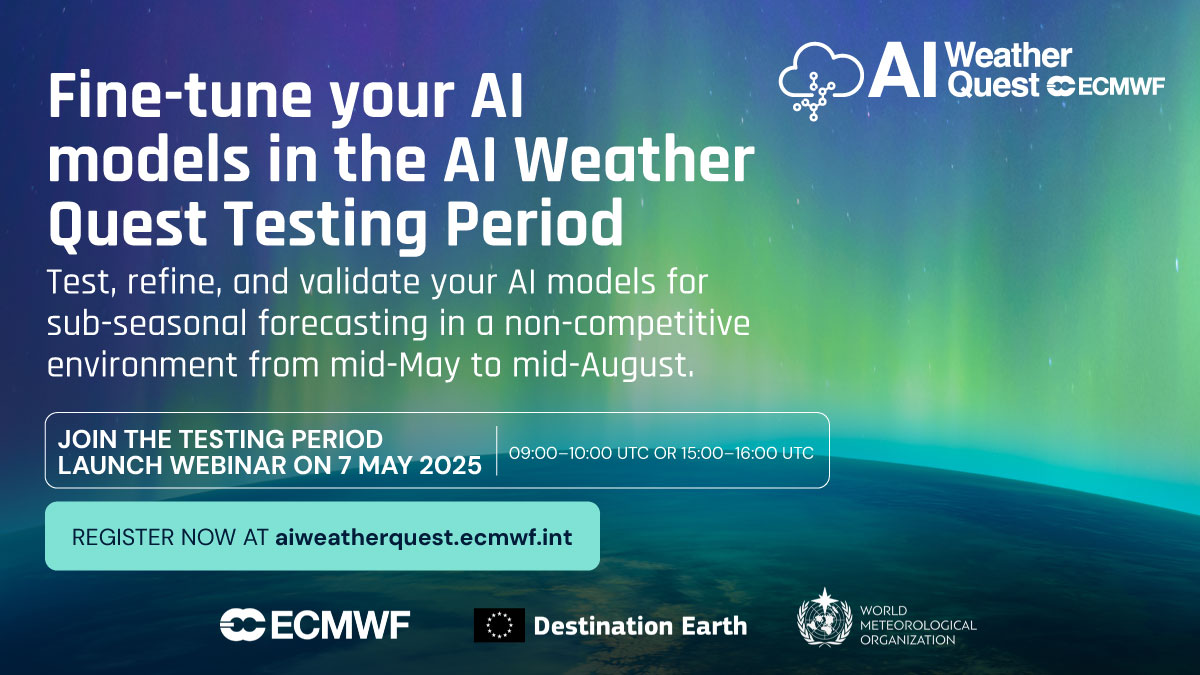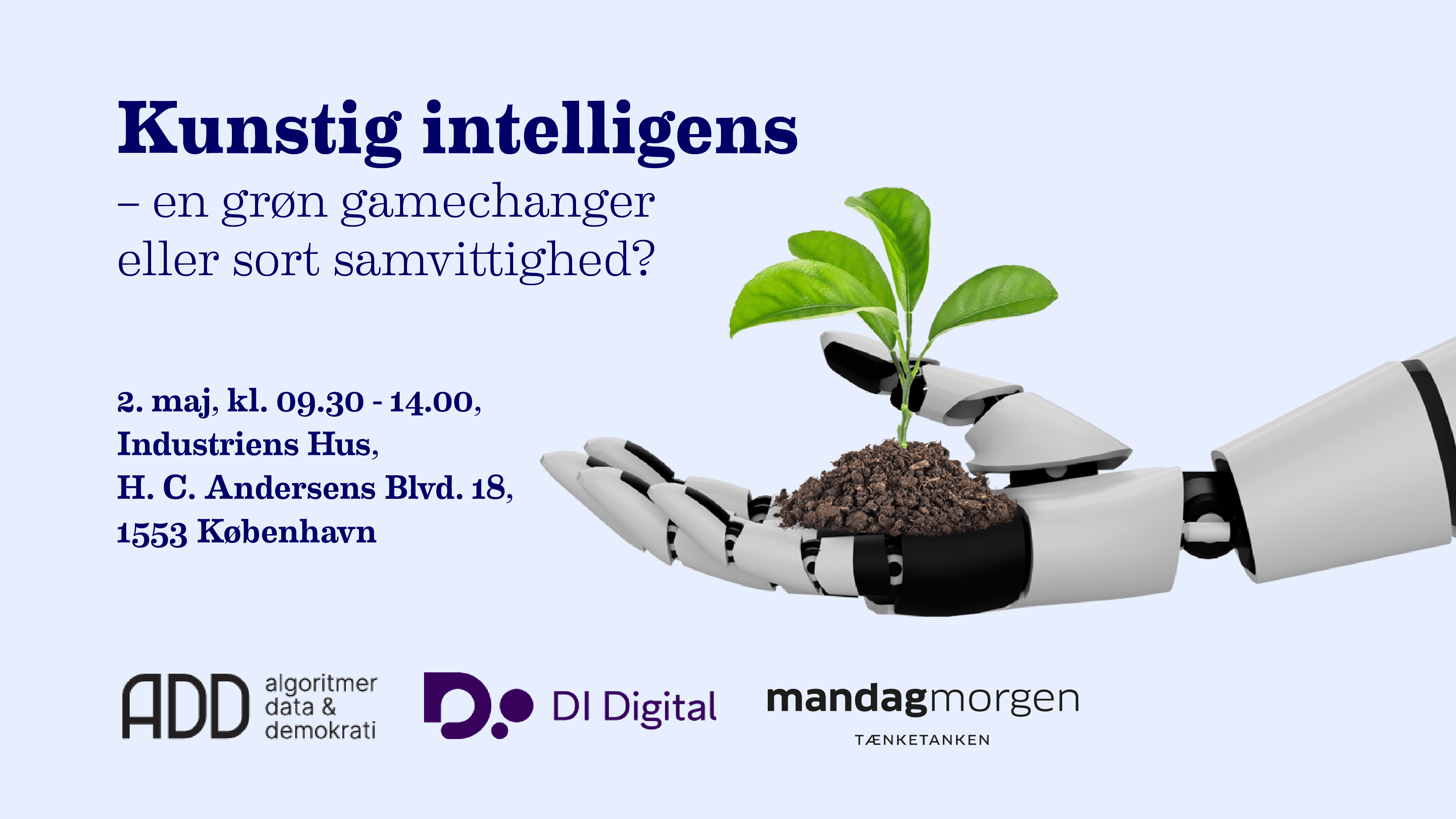Climate AI Nordics Newsletter, April 2025

Welcome to the Climate AI Nordics Newsletter April 2025, and happy Walpurgis!
Since the launch in October, the network has grown to 153 people spread over the Nordic countries (203 including international supporting affiliates). Do you know researchers who works in the intersection of AI and Climate Change? Tell them about Climate AI Nordics! climateainordics.com/join.
News
2025 Nordic Workshop on AI for Climate Change

2025-05-13 The 2025 Nordic Workshop on AI for Climate Change will gather researchers from the Nordics. This one-day, in-person workshop, will take place in Gothenburg, Sweden, May 13th 2025. The workshop will feature a mix of keynotes, oral presentations, and posters around the topics of AI for climate change, including AI for biodiversity and the green transition. The workshop will be a meeting point for a wide range of researchers from (primarily) around the Nordic countries.
(Read more)
Climate AI Nordics now has 200+ registered persons
2025-04-30
Climate AI Nordics recently reached a new milestone of 150+ Nordics-affiliated researchers, and 200+ when including outside-Nordics-affiliated reserachers. Exciting to see the network growing!
Read more! 2025-04-30 The AukLab project on Stora Karlsö enhances its AI-driven monitoring of Common Guillemots by adding continuous acoustic recording to its existing camera surveillance. A new system using synchronized Raspberry Pi units captures and analyzes guillemot vocalizations, integrating this audio data with visual and thermal information. Researchers aim to use machine learning on this combined dataset to gain deeper insights into social interactions, parental care, environmental responses, and potentially even detect fish arrivals acoustically. This addition represents a significant step towards creating a comprehensive digital representation of the guillemot colony for broader research access. 2025-04-07 ECMWF invites AI/ML experts to improve sub-seasonal forecasts (days 19-25 & 26-31)—key for climate adaptation & planning. Open to all, any tools/datasets. Event date: 2025-05-02. How can we utilize the enormous potential of artificial intelligence (AI) while also taking into account its impact on the climate? Artificial intelligence has the potential to transform large parts of our society and play a crucial role in the green transition. But at the same time, we must be aware of the energy consumption and the resource load that the use of AI also entails. Event date: 2025-05-08. Webinar with Ghjulia Sialelli, ETH Zurich. The combination of remote sensing and machine learning has made it possible to map forest properties at an unprecedented scale and resolution. In this presentation, I will focus on the application of deep learning techniques to estimate above-ground biomass (AGB), a key metric for tracking forest carbon and ecosystem dynamics. I will begin by introducing our recently published, machine-learning-ready dataset. It features high-resolution (10m) multi-modal satellite imagery, paired with AGB reference values from NASA’s Global Ecosystem Dynamics Investigation (GEDI) mission. Key aspects include the carefully selected geographic coverage, thoughtful integration of diverse satellite data sources, and the establishment of performance baselines using standard deep learning models. Next, I will describe our ongoing efforts to build on said baselines. This was done both through feature and model engineering. I will also mention some promising yet unsuccessful approaches, highlighting some key challenges of the task at hand. Finally, I will discuss future directions, including incorporating uncertainty estimation and exploring the potential for generating a global above-ground biomass map. Event date: 2025-05-22. Webinar with John Martinsson, RISE and Lund University. Machine learning models now help scientists analyze vast datasets across every branch of science. These models typically improve with more data and larger architectures, mainly through supervised learning. Both training and evaluation therefore rely on labeled datasets. A main challenge is scaling the data labeling effort to the volumes required, because it is costly and label quality can vary. Methods that deliver inexpensive yet accurate labels are therefore essential. This talk examines how to lower annotation cost and increase label quality when labeling local structures in data—for example, a local structure can be a sound event in an audio recording. By detecting the boundaries of such structures automatically, we let annotators focus on supplying concise textual descriptions for the content within those boundaries. In this setting we analyze a widely used labeling method for audio where fixed and equal length audio segments are labeled with presence or absence of an event class. We benchmark it against an oracle method that defines an upper bound, and propose adaptive labeling techniques that achieve higher‑quality labels for the studied datasets at a lower cost. Make sure to share your work with us, by sending us an email ( contact@climateainordics.com), posting in our Slack or some other channel, and we’ll add it to the news feed! Take the chance of showcasing your work or your events to the community! Also be sure to follow us on LinkedIn and BlueSky. Climate AI Nordics will have the most impact if you repost and like our stories! Climate AI Nordics is a network of researchers working to harness AI in tackling the climate crisis through both mitigation and adaptation. We promote the development of AI-based tools and optimization methods that support sustainable decision-making—helping reduce emissions, restore ecosystems, and build climate resilience.Featured Project: Acoustic Monitoring of Guillemot Life at Stora Karlsö

(Read more)Will you join the #AIWeatherQuest?

(Read more)Coming events
AI - a green gamechanger or a dirty conciousness?

(Read more)SatML for large-scale above-ground biomass estimation

(Read more)Efficient and precise annotation of local structures in data

(Read more)Your news in the newsletter!
